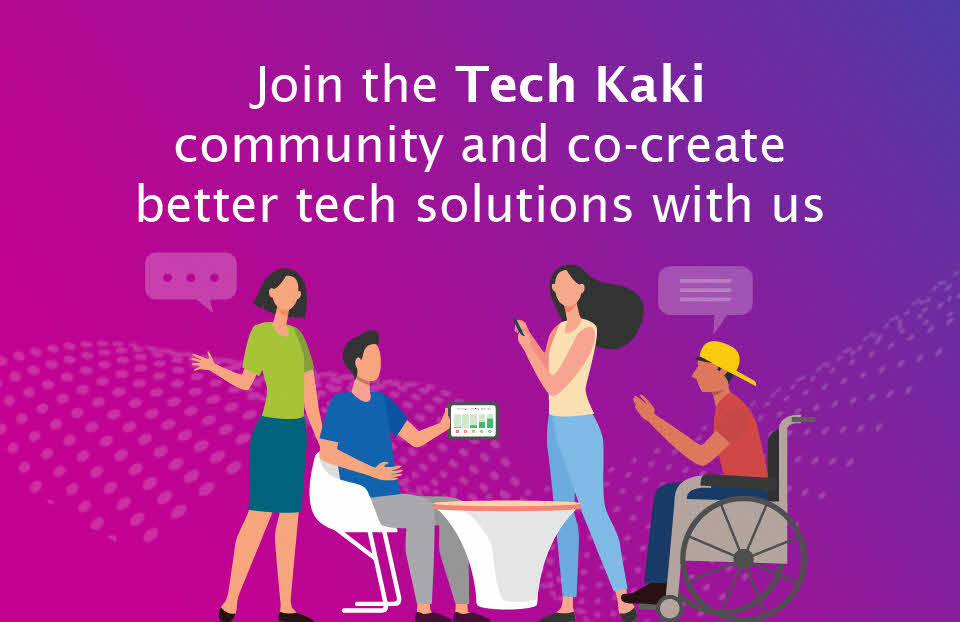5 free ways you can get smarter about AI

In this year’s budget, PM Lawrence Wong described Artificial Intelligence (AI) not just as ChatGPT or Large Language Models, but rather as a key technology of the future – comparing it to technological breakthroughs such as the electricity, or the internal combustion engine.
That said, it’s understandable that one might nurse fears that AI might replace you at the workplace someday. A survey by Microsoft last year showed that two-thirds of Singaporeans are afraid that they’ll lose their jobs due to AI.
So if you’re feeling anxious about AI, harness that energy and learn about how the tech works and what it can do for you. After all, you don’t fear what you understand.
Here are some tips to empower yourself with AI knowledge:
- Don’t knock it till you’ve tried it
- Read up on how AI actually works
- Discover how AI projects are pulled off
- Join communities with an interest in AI and tech
- Get certified in AI
1. Don’t knock it till you’ve tried it
It’s been more than a year since generative AI took the world by storm, so if you still haven’t tried it yet, it’s time to come up from whatever rock you’ve been living under.
Chatbots and image generators are the main generative AI tools available for free now, so make sure you use both of them.
Once you’ve got past the initial aimless exploration, challenge yourself to use them in your everyday life. Whether it’s creating a packing list and itinerary for your upcoming holiday, or producing sketches and pictures to go with your work presentation, this gets you to start seeing AI as a tool you can use, instead of an amorphous, malignant force.
If you have difficulty getting exactly what you want or even something close to it, you’ll know why prompt engineering is such a buzz phrase now. Getting good at getting good results from AI is a sought-after skill nowadays, so you’re already getting future-ready!
And if you’ve heard of AI hallucinating and making things up, why not try it out yourself and see if you can break the chatbot you’re using? At the very least, you’ll quickly learn about the limitations of the chatbot you’re using when it starts giving ever less useful replies. And hopefully, you also realise you need to double-check information from chatbots and not end up like a certain lawyer who cited legal cases that turned out to be entirely fabricated by a chatbot.
2. Read up on how AI actually works
Now that you’ve tried your hand at generative AI tools, it’s time to gain some understanding of what’s going on under the hood.
Yes, AI researchers are typically PhD holders, but there are many good articles such as this one that explain AI using plain English. You’ll not only gain an overall understanding of AI but also other terms such as machine learning and natural language processing, concepts that are critical to the inner workings of chatbots.
Be sure to sign up for updates from the links above so that you regularly read about the latest developments and trends in AI. If you’re reading this, you probably already know that GovTech’s very own TechNews page is a handy source of informative articles on AI and all things tech! And of course, along the way, you’ll discover other useful resources of your own.
3. Discover how AI projects are pulled off
Now that you’ve done some homework, you have the requisite knowledge to read up on how AI projects are done. This will acquaint you with the necessary ingredients for a successful AI tool (typically, lots of data) and the stages and processes involved.
For instance, you can check out TechNews’ articles on using AI to detect smoking at public parks, or how AI can identify healthy fish feed for farming.
There is also the Medium page of the Data Science and Artificial Intelligence Division, which dives deeper into topics like large language models.
Besides GovTech pages, other organisations also share outlines of how they use AI in their daily operations, such as improving paywalls. These articles are also typically written with a mix of technical and everyday language, so they stretch your understanding without completely losing you.
4. Join communities with an interest in AI and tech
Remember how we used to form study groups to mug together, motivating each other to stay the course when we were kids? Being part of communities that are interested in tech and AI provides the same benefits.
For instance, DataScience SG frequently posts about the latest AI developments and engaging discussions on various related topics. You can also check out GovTech’s community of tech experts, STACK, to expand your network. Such communities also have information about industry talks, workshops, and events that will sustain your interest and expand your horizons.
5. Get certified in AI
This sounds intimidating, but there are actually baby steps you can take towards finally earning some industry-recognised qualifications.
MySkillsFuture has a wealth of courses on AI for your pick, ranging from general introductory courses to how AI can be applied to different sectors like finance and marketing.
For those who have done their homework and are ready to make a leap into a new industry, AI Singapore’s AI Apprenticeship Programme is an intense scheme with a two-month AI-engineering learning phase followed by seven to 10 months of on-the-job training. Those who complete the programme are then ready to become AI professionals.
Tech just keeps rolling on
OpenAI announced its latest product in mid-February, an AI model that can generate cinema-quality video from text prompts. Given the speed at which AI is advancing, there’s no telling which aspect of life and work it will touch next.
Will AI wipe out jobs on a massive scale? The jury is still out on this one (although our AI overlords may read this in the not-so-distant future and laugh at the naivety of humanity).
What is more certain is that AI is already changing how humans do their jobs. Even if AI doesn’t replace you, a person who knows how to use AI tools might very well do so.
One thing is for sure: it’s time to get smarter about AI and take steps towards boosting your own intelligence.



